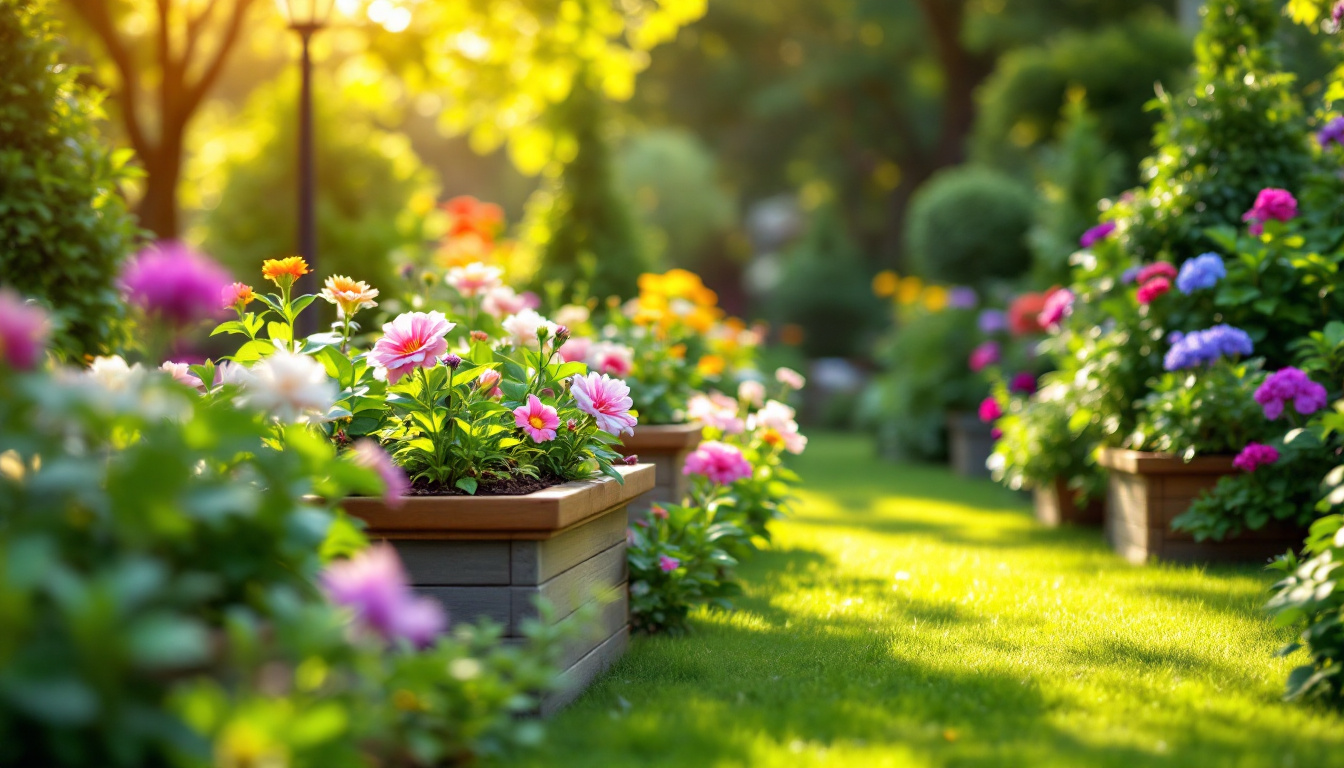
The Benefits of Gardening Programs in Assisted Living
Cultivating Wellness: How Gardening Transforms Assisted Living

Cultivating Wellness: How Gardening Transforms Assisted Living
Gardening programs in assisted living communities serve more than just an aesthetic purpose—they are vital tools for enhancing the overall quality of life for seniors. These programs rejuvenate the mind, body, and spirit, contributing to happier, healthier, and more connected living environments.

Gardening provides numerous health benefits for older adults, encompassing physical, mental, and social advantages. Engaging in gardening activities offers light to moderate exercise, promoting strength, flexibility, and balance. These physical activities can lower blood pressure, helping seniors maintain heart health and decrease their risk for chronic illnesses like type 2 diabetes.
Cognitively, gardening stimulates memory, attention, and planning, enhancing overall brain function. Research suggests that daily interactions with plants can lead to a significant reduction in dementia risk and improvements in cognitive health. Additionally, horticultural therapy can be particularly beneficial for seniors with cognitive impairments, aiding in memory retention and providing calming experiences.
Socially, gardening serves as a catalyst for community building. It helps to alleviate feelings of loneliness and isolation, which are common among older adults. Participating in group gardening activities fosters connections through shared projects and experiences, creating a sense of fellowship.
Lastly, the therapeutic nature of gardening offers mindfulness and stress relief, enhancing overall emotional wellness. By nurturing plants, seniors often experience a boost in mood and a sense of accomplishment from witnessing their efforts bloom.

Gardening significantly enhances mental health and cognitive functioning among seniors, particularly those grappling with dementia. By mitigating stress, boredom, and anxiety, gardening activities create an enriching environment that fosters well-being. Garden-based tasks, such as planting seeds or tending to plants, instill a sense of accomplishment, thereby enhancing mood and self-worth.
Creating sensory-rich features in gardens, such as water elements or attracting local wildlife, doesn’t just beautify spaces; it can also evoke cherished memories and encourage social interaction, which is vital as we age. Engaging in outdoor meals amidst the garden setting brings a comforting sense of familiarity and joy for seniors.
Additionally, activities like painting garden furniture provide a purposeful outlet, promoting relaxation while contributing to the visual appeal of the outdoor space. Ultimately, gardening serves as an invaluable avenue for meaningful engagement and connection, helping maintain mental health and cognitive abilities among older adults, especially those experiencing cognitive decline.

Gardening offers a wealth of physical benefits for seniors, significantly enhancing their overall health and well-being. By engaging in this activity, older adults can improve their dexterity, strength, and balance. Simple tasks involved in gardening, such as digging, planting, and weeding, engage major and minor motor skills, translating to substantial physical exercise.
These activities are comparable to low-impact aerobic exercise, promoting cardiovascular health. In fact, seniors can benefit from increased stamina and flexibility, which are crucial for maintaining independence as they age. Regular engagement in gardening can help lower blood pressure and reduce stress levels, contributing to improved mental health and decreased feelings of anxiety and depression.
Studies support the notion that gardening activities not only enhance physical health but also foster better mobility, as tasks like kneeling and reaching strengthen muscles and improve coordination. This improvement in physical capability directly correlates with a decreased risk of falls, a significant concern for older adults. Moreover, spending time outdoors while gardening allows seniors to soak up essential vitamin D, promoting bone health and overall immunity.
Gardening also instills a sense of accomplishment in seniors as they nurture plants and witness their growth, which can boost their self-esteem and promote a positive self-image. Thus, gardening emerges as a holistic approach that combines physical activity with emotional satisfaction, enhancing both physical wellness and mental resilience.

Gardening in assisted living settings fosters a strong sense of community among residents. By participating in group gardening projects, seniors collaborate to plant and tend to various plants or vegetables. This teamwork not only cultivates gardens but also friendships, offering a social platform for individuals to connect and share gardening experiences.
The act of gardening provides elders with invaluable opportunities to engage with others. With each watering session, planting day, or harvesting period, seniors can share tips, stories, and laughter, reinforcing bonds within the community. Shared gardening activities often lead to increased conversations, which can enrich their social networks significantly.
Gardening programs have been shown to substantially decrease feelings of isolation among older adults. According to a study involving nursing home residents, participation in indoor gardening activities led to a notable reduction in loneliness. Engaging with plants and fellow gardeners helps create a nurturing environment where seniors feel valued and connected, thus enhancing their overall emotional well-being.
In summary, the social dimensions arising from gardening in assisted living settings are profound, promoting community, interaction, and combating loneliness effectively.

Gardening programs can take various forms to cater to the interests and abilities of seniors. Some popular program types include:
To ensure participation, accessibility is crucial. Here are tips to improve accessibility for seniors:
Community gardening can be an enriching experience. Here are some tips for successful implementation:
The integration of gardening programs in assisted living facilities offers invaluable benefits, transforming the daily experiences of residents. As seniors dig into the enriching practice of gardening, they cultivate not just plants, but a profound sense of health, purpose, and community, making their twilight years vibrant and fulfilling.

Navigating Costs and Care at North Home Assisted Living



Navigating the World of Assisted Living: A Comprehensive Guide

Exploring Quality Care at Hibiscus Palace III
